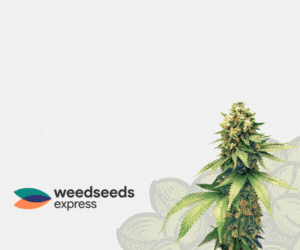04-10-2021, 03:25 PM
Weed is the most regularly utilized psychotropic medication in the United States, after alcohol.1 Its utilization is far-reaching among youngsters. In 2018, more than 11.8 million youthful grown-ups used pot in the previous year. Paces of past-year weed use among the center and secondary school understudies have stayed consistent. However, the number of teenagers in eighth and tenth grades who say they use it every day has expanded. With the developing ubiquity of vaping gadgets, youngsters have begun vaping THC, with almost 4% of twelfth graders saying they vape THC day by day. Moreover, the quantity of youngsters who accept standard cannabis use is hazardous is diminishing. You've unquestionably known about cannabis business visionary and pot culture symbol Snoop Dogg, who supposedly smokes an incredible 81 blunts each day.
Doubtlessly that there are a lot of famous people and customers who smoke weed each day. So now the inquiry emerges is smoking weed awesome. Is it positive or negative? How about we look at it?
So let's dig deep into how dopes cannabis or weed affect your brain and body.
Without a doubt, cannabis utilization has numerous advantages, including, yet not restricted to: overseeing ongoing agony, enhancing PTSD, assisting individuals with putting on weight, managing epilepsy and uneasiness, thus substantially more. Furthermore, we should not fail to remember. Cannabis utilization can start imagination and efficiency and be fun with no defenses on THC's account, the cannabinoid that gets you high. There are a more significant number of motivations not to smoke weed each than to devour with such routineness. While the meaning of what comprises substantial utilization is far from being true.
Weed has both short-and long time consequences for the cerebrum:
Analysts are concentrating on how long pot's belongings last and whether a few changes might be perpetual.
Now let's focus on the impact on other body parts:
Does Regular Weed And Cannabis Intake Develop THC And The Endocannabinoid System Tolerance?
A reality that needs no clarification to shoppers is that customary cannabis utilization unavoidably prompts resistance. THC connects to CB1 receptors during weed utilization, situated all through the body as a feature of the endocannabinoid framework. This physiological interaction assists the body with making and keeping up substantial amicability. When THC secures in the CB1 receptor, we get the sensation of being "high" yet different frameworks are regulated, including rest, agony, and craving. However, when THC is consistently burned-through or for delayed timeframes, the affectability of the CB1 receptor gets diminished, which prompts decreased impacts. What amount of time it requires for resistance to set in relies upon a couple of variables, including how regularly you devour, the degree of THC you're burning-through, and your very own science.
THE TOPIC THAT NEEDS MUCH CONSIDERATION:
So still, the question remains the same Should we smoke weed or cannabis daily? Mostly it is recommended that no you should not smoke them regularly. At least try to have a break for at least 48 hours or more and try not to develop a dependency on cannabis or weed for your daily life processes.
Doubtlessly that there are a lot of famous people and customers who smoke weed each day. So now the inquiry emerges is smoking weed awesome. Is it positive or negative? How about we look at it?
So let's dig deep into how dopes cannabis or weed affect your brain and body.
Without a doubt, cannabis utilization has numerous advantages, including, yet not restricted to: overseeing ongoing agony, enhancing PTSD, assisting individuals with putting on weight, managing epilepsy and uneasiness, thus substantially more. Furthermore, we should not fail to remember. Cannabis utilization can start imagination and efficiency and be fun with no defenses on THC's account, the cannabinoid that gets you high. There are a more significant number of motivations not to smoke weed each than to devour with such routineness. While the meaning of what comprises substantial utilization is far from being true.
Weed has both short-and long time consequences for the cerebrum:
- Short span effects
- Long time Effects
Analysts are concentrating on how long pot's belongings last and whether a few changes might be perpetual.
Now let's focus on the impact on other body parts:
- BREATHING ISSUES
- INCREASED PULSE RATE
- ISSUES WITH BABY GROWTH DURING AND AFTER PREGNANCY
Does Regular Weed And Cannabis Intake Develop THC And The Endocannabinoid System Tolerance?
A reality that needs no clarification to shoppers is that customary cannabis utilization unavoidably prompts resistance. THC connects to CB1 receptors during weed utilization, situated all through the body as a feature of the endocannabinoid framework. This physiological interaction assists the body with making and keeping up substantial amicability. When THC secures in the CB1 receptor, we get the sensation of being "high" yet different frameworks are regulated, including rest, agony, and craving. However, when THC is consistently burned-through or for delayed timeframes, the affectability of the CB1 receptor gets diminished, which prompts decreased impacts. What amount of time it requires for resistance to set in relies upon a couple of variables, including how regularly you devour, the degree of THC you're burning-through, and your very own science.
THE TOPIC THAT NEEDS MUCH CONSIDERATION:
- A Rise in Marijuana's THC Levels
- Could an individual excess on marijuana?
- Other Health Effects related to smoking weed daily?
So still, the question remains the same Should we smoke weed or cannabis daily? Mostly it is recommended that no you should not smoke them regularly. At least try to have a break for at least 48 hours or more and try not to develop a dependency on cannabis or weed for your daily life processes.






